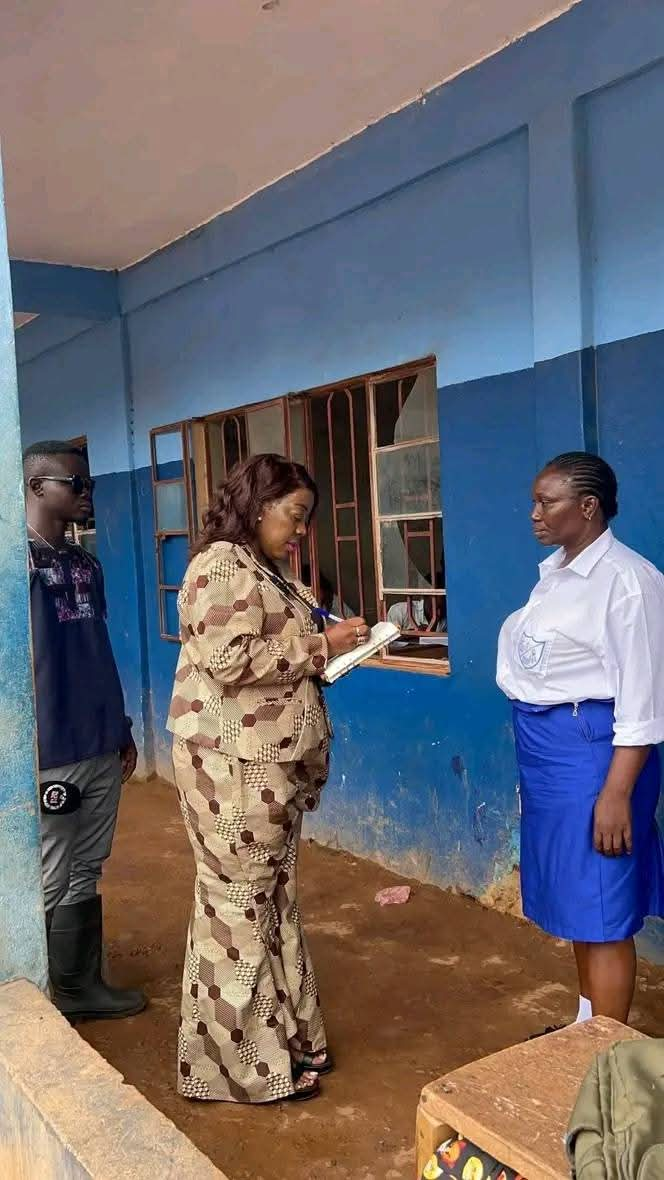ABUJA (CONVERSEER) – The Internet, especially social media, has been on fire following the recent outburst by a certain invigilator who stopped an elderly woman from writing the May/June 2025 WAEC exams.
The question has been, was the female invigilator right to send the elderly woman who defeated age and stereotypes home?
Nigeria, just like many other countries, operates on the rule of law – which is either based on the law itself or certain policies, and the educational system has several of these policies, which are not outright laws. These policies are enforced by the Federal and State Ministries of Education.
Reports indicate that the invigilator sent the elderly woman home because she is not within the maximum age limit to write the internal West African Examinations Council (WAEC) and National Examinations Council (NECO) exams.
Apparently, there is no maximum age limit for the West African School Certificate Examination (WASSCE), including WAEC, NECO and other SSCE (Senior Secondary Certificate Examination).
In 2024, the Federal Government of Nigeria, through the Minister of State for Education, Dr Tanko Sununu, made it clear that there are no age restrictions for taking these examinations. However, restrictions may apply for university admission requirements, which may have their own age criteria.
Many have said the age limit is 18, some said 25, but Sununu said, “As regards this matter, we have made ourselves clear in different fora. But the issue kept recurring here and there. Actually, nobody among the two of us, the Minister of Education, Prof. Tahir Mamman, nor the Minister of State, stated anything about the age limit for WAEC, NECO or NABTEB.
“People just pick up some remarks the Minister made, misinterpreted the statements to imply that age restriction has been placed for WAEC and NECO examinations.
“What we have been mentioning in the past was the entry age for University, candidates sitting for the UTME (Unified Tertiary Matriculation Examination (UTME). We have made this clear several times, and this is in line with the National Policy on Education.
“The document stated that a child is expected to enter Primary School at six years, and he’s expected to spend six years in that school, making it 12 years, and three years each in junior and senior secondary schools, making it 18 years. That’s what is contained in the National Policy on Education document.
“The Policy further stated that a child should learn in the language of the immediate environment or mother tongue up till primary three before English language could be introduced in subsequent years. That has facilitated learning at that level because you can easily communicate.”
READ ALSO: Elderly woman earns admiration for courageously sitting in WAEC exams alongside teenagers
Now, after reading the above, was the invigilator right for sending the elderly woman who wanted to fulfil her dreams out of the examination hall?

Many Nigerians have faced steeper punishments, mostly wrong, by educational heads (teachers, lecturers, supervisors, invigilators) on their way to acquiring knowledge and certification and that hasn’t stopped a bit.
Primary and Secondary Education in Nigeria
Nigeria follows the 6+3+3 system of primary-secondary education. Six years of primary education are followed by three years of junior secondary education and three years of senior secondary education.
- Elementary education in Nigeria is six years in duration, and runs from grade one through six (ages 6-12). Students are awarded the Primary School Leaving Certificate on completion of Grade 6, based on continuous assessment.
- Junior Secondary Education is 3 years (ages 13-16) Grades 7-9. Students are awarded the Basic Education Certificate (BEC) on completion of Grade 9. Students must achieve passes in six subjects, including English and mathematics, to pass the Basic Education Certificate Examination.
- Senior Secondary Education is 3 years (ages 16-19) Grades 10-12.
- Upon completion of Grade 12 in May/June, students sit for the Senior School Certificate Examination (SSCE). They are examined in a minimum of seven and a maximum of nine subjects, including Mathematics and English, which are compulsory. Successful candidates are awarded the Senior Secondary Certificate (SSC).
- Most universities require passes in at least five SSC subjects and an average grade of at least ‘credit’ level (C6) or better to be considered for admission.
SSC examinations are offered by the West African Examination Council and the National Examination Council (NECO).
The Federal Ministry of Education is responsible for overall policy formation and quality control. Secondary School education is largely the responsibility of state governments and Elementary School education the responsibility of local governments.
Grade conversion scale for Nigeria:
| Grade Scale | Description | U.S. Grade Equivalence |
| A1 | Excellent | A |
| B2 | Very Good | A |
| B3 | Good | B |
| C4 | Credit | B |
| C5 | Credit | B |
| C6 | Credit | B |
| D7 | Pass | C |
| D8 | Pass | C |
| F9 | Fail | F |
Credentials:
- Primary/First School Leaving Certificate (FSLC) – Obsolete
- Basic Education Certificate (BEC)
- Senior Secondary Certificate (SSC)




